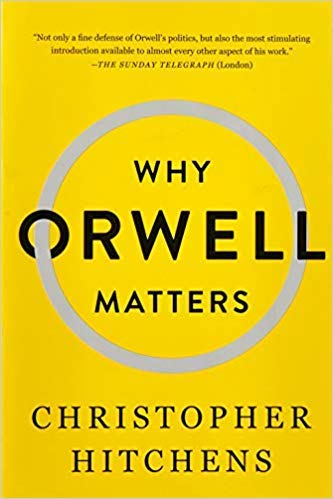What do you think?
Rate this book


Unknown Binding
First published January 1, 2002
”...it remains the case that, in an epoch of extreme yet cynically fluctuating factual loyalism, he managed both to be a consistent and adamant foe of both Hitler and Stalin, while writing commentaries that tried to be “objective” about each of them...This is the same Orwell who would not shoot a Spanish fascist soldier while the man was running from the latrine and trying to hold up his trousers; the same Orwell who sacrificed the enormous extra bounty of a “Book of the Month Club” selection, at a time of extrme financial anxiety, rather than make some minor suggested alterations to his novel….
...Orwell’s “views” have been largely vindicated by Time, so he need not seek any pardon on that score. But what he illustrates, by his commitment to language as the partner of truth, is that “views” do not really count; that it matters not what you think, but how you think; and that politics are relatively unimportant, while principles have a way of enduring, as do the few irreducible individuals who maintain allegiance to them.
"Now as it happens, I know for certain that Williams had seen Orwell's early and late work on George Gissing."
""Prose literature as we know it,' he wrote, 'is the product of rationalism, of the Protestant centuries, of the autonomous individual.'"
"I think we can be sure that the contract would not have gone to some windmill-power concern run by Naomi Klein or the anti-Starbucks Seattle coalition, in the hope of just blowing out the flames or of extinguishing them with Buddhist mantras."
"With a part of themselves, humans relish cruelty and war and absolute capricious authority, are bored by civilized and humane pursuits and understand only too well the latent connection between sexual repression and orgiastic vicarious collectivized release."
Time that is intolerant
Of the brave and innocent,
And indifferent in a week
To a beautiful physique,
Worships language and forgives
Everyone by whom it lives;
Pardons cowardice, conceit,
Lays its honours at their feet.
Time that with this strange excuse
Pardoned Kipling and his views,
And will pardon Paul Claudel,
Pardons him for writing well.
 This arrived today, and already I am having a problem keeping my eyes out of it: there are others on the currently reading list, don't you know.
This arrived today, and already I am having a problem keeping my eyes out of it: there are others on the currently reading list, don't you know.